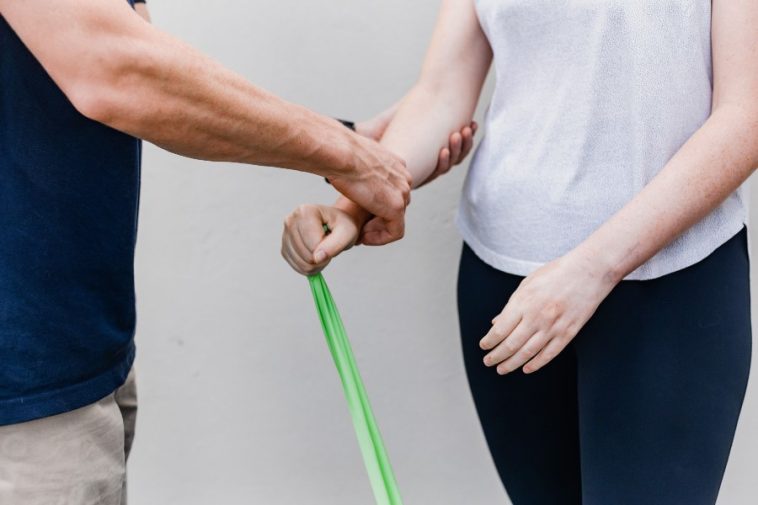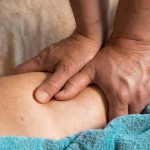When it comes to maintaining overall health and wellness, we often focus on various aspects, such as exercise. However, one important area that is sometimes overlooked is vein health. Our veins play a crucial role in carrying blood back to the heart. Veins ensure proper circulation throughout the body. In this article, we will explore the role of real food in supporting vein health. You will discover the nutrients and foods that can promote optimal vein function.
Importance Of Vein Health
Healthy veins are essential for proper circulation and overall well-being. Vein issues can lead to:
– Discomfort

– Swelling
– Varicose veins
– Deep vein thrombosis
By prioritizing vein health, we can improve blood flow, reduce the risk of complications, and enhance our quality of life. A vein specialist Dallas can help you improve your vein health and well-being.
Understanding Vein Health
It is important to understand how veins function clearly and the various conditions that can affect them. In this section, we will delve deeper into the types of vein conditions and the common symptoms to watch out for.
Types of Vein Conditions
Vein conditions can range from mild to severe, with varicose veins and spider veins as typical examples. Varicose veins are enlarged, twisted veins that often appear on the legs and can cause discomfort or pain. Spider veins, on the other hand, are smaller, web-like veins visible on the skin’s surface. Other conditions include deep vein thrombosis (DVT) and chronic venous insufficiency (CVI).
Causes of Vein Problems
Various factors contribute to the development of vein problems. These include:
– Age
– Genetics
– Obesity
– Hormonal changes
– Pregnancy
– Prolonged sitting or standing
– Sedentary lifestyle
Understanding the underlying causes can help us make informed choices to promote vein health.
Symptoms of Vein Issues
Symptoms of vein issues may include:
– Leg pain
– Heaviness or fatigue in the legs
– Swelling, itching, and restless legs
– Visible veins
If you experience these symptoms, consult a vein doctor for proper diagnosis and treatment.
Real Food And Vein Health
The food we consume plays a significant role in our health, including the well-being of our veins. This section will explore the vital connection between real food and vein health.
Nutrients For Healthy Veins
Several nutrients play a vital role in supporting vein health. These include:
1. Vitamin C. This antioxidant-rich vitamin helps strengthen blood vessels. It also promotes collagen production, which is essential for healthy veins.
2. Vitamin E. Known for its antioxidant properties, vitamin E protects against oxidative stress and supports proper blood circulation.
3. Vitamin K. Important for blood clotting and preventing excessive bleeding, vitamin K contributes to maintaining healthy veins.
4. Fiber. A high-fiber diet aids in maintaining a healthy weight, which can alleviate pressure on veins. Also, a healthy weight can reduce the risk of varicose veins.
Foods That Promote Vein Health
Specific foods in our diet provide the necessary nutrients for promoting vein health. Some examples include:
1. Citrus Fruits. Oranges, lemons, and grapefruits are rich in vitamin C. This vitamin helps support healthy circulation.
2. Leafy Greens. Spinach, kale, and other leafy greens contain vitamin K, which aids in proper blood clotting.
3. Berries. Blueberries, strawberries, and raspberries are packed with antioxidants that protect blood vessels from damage and inflammation.
4. Nuts and Seeds. Almonds, walnuts, and flaxseeds are excellent sources of vitamin E, which promotes optimal blood flow.
5. Whole Grains. Foods like quinoa and brown rice provide fiber, which supports a healthy weight and reduces pressure on veins.
The Benefits Of A Real Food Diet
A real food diet, which focuses on minimally processed and whole foods, can have numerous benefits for vein health. By focusing on these foods, we nourish our bodies with vital nutrients for healthy veins:
– Fresh fruits
– Vegetables
– Lean proteins
– Healthy fats
Also, a real food diet often helps in the following factors:
– Maintain a healthy weight
– Reduce the strain on veins
– Decreasing the risk of vein issues
Lifestyle Practices For Vein Health
Aside from incorporating real food into our diet, certain lifestyle practices can promote vein health. These practices include:
1. Exercise and Physical Activity
Regular exercise, particularly involving leg movement, can enhance blood circulation. Activities like walking or swimming strengthen the muscles that support vein function. Aim for at least 30 minutes of moderate-intensity exercise most days of the week to reap the benefits for vein health.
2. Maintaining a Healthy Weight
Maintaining a healthy weight is crucial for vein health. Excess weight can put additional pressure on the veins, increasing the risk of vein issues. Focus on a balanced diet and portion control to achieve a healthy weight range.
3. Avoiding Prolonged Sitting or Standing
Sitting or standing for extended periods can hinder blood flow and contribute to vein problems. If your job requires prolonged periods of inactivity, make an effort to take breaks. Engage in movements that promote circulation, such as stretching, walking, or elevating your legs.
Conclusion
Prioritizing vein health is essential for overall well-being. We can support optimal vein health by incorporating real food into our diet. Also, adopting lifestyle practices that promote circulation can reduce the risk of vein-related complications. Remember to consult a vein doctor if you experience persistent vein issues or symptoms.





